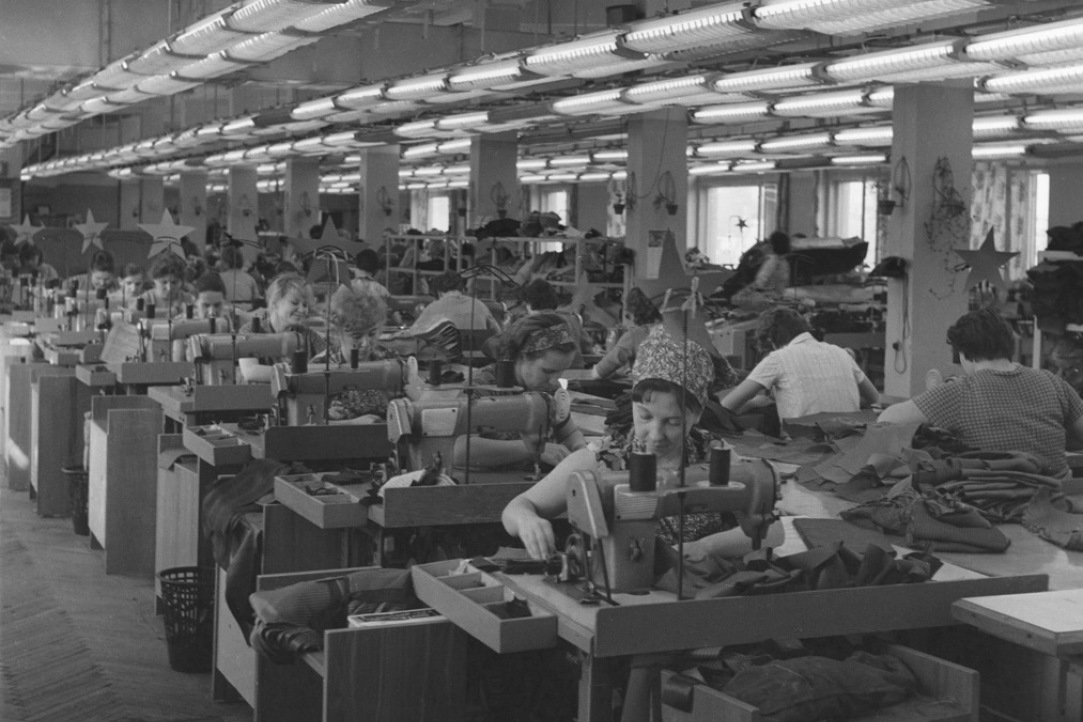
News

On April 19, Apurva Sanghi, Lead Economist of the World Bank, a partner of HSE University and Russia KLEMS, presented his report at the XXII HSE April Conference.He presented the results of a study that examines the contribution of global value chains (GVC) to the development of the Russian economy over the past two decades, and identifies the possibilities of GVC as a locomotive of economic growth. The growth-enhancing capabilities of the GVC allow for the identification of potential obstacles, as well as for a number of economic policy proposals to address them.While this study describes a sanctioned Russia—less connected to global markets, less innovative, and with less transparent private-public interactions that hinder fair competition—it also identifies significant potential benefits for the Russian economy from more intensive participation in the global division of labor. While sanctions remain a major obstacle to foreign direct investment, there are various measures that Russia could take to make its business climate more attractive for expanding trade and investment
On April 15, at the XXII April Conference, a round table "Productivity, Diversification and Sustainable Economic Growth" was held. It was attended by Russian and international experts in economics.At the event, the participants discussed the following issues:- What are the risks for the economy's dependence on raw materials for its long-term growth?- What are possible measures to diversify the economy?- What are the possible negative medium-term consequences of diversification in terms of falling incomes, inequality and poverty?- Does the Russian economy require diversification? If so, what are the main approaches to its implementation?
Bart van Ark, professor of productivity studies at the Alliance Manchester Business School (AMBS) at the University of Manchester, spoke at the XXII April conference on April 14.
His report, "Why do the economy, business, workers, and society need productivity growth?", focuses on the slowdown in global productivity growth over the past 15 years, reasons for the slowdown, and measures that could revive it. Bart van Ark says to do this, the economy must become more receptive to innovation, which requires a coordinated effort from business, government, and individual workers. There is also a need for a better understanding of the extent to which, and how, productivity growth contributes to people’s welfare.
His report, "Why do the economy, business, workers, and society need productivity growth?", focuses on the slowdown in global productivity growth over the past 15 years, reasons for the slowdown, and measures that could revive it. Bart van Ark says to do this, the economy must become more receptive to innovation, which requires a coordinated effort from business, government, and individual workers. There is also a need for a better understanding of the extent to which, and how, productivity growth contributes to people’s welfare.
On April 14, at the XXII April Conference, a team under the supervision of Vladimir Gimpelson presented their report, prepared as part of the HCMRC (Human Capital Multidisciplinary Research Center) program.The labor force quality indicator from the Russia KLEMS data set made it possible to assess the contribution of labor force quality to labor productivity growth in the Russian economy, and to compare this contribution with similar indicators for former Soviet republics.The research concludes that Russian human capital is not as productive as it could be. The quality of the labor force does not make a tangible contribution to the growth of labor productivity and an acceleration of growth due to the role of human capital will not occur in the next two to three decades.
The World KLEMS initiative brings together representatives from different countries and organizations who develop indicators of cross-country economic performance comparisons at the level of individual industries and conduct research based on these. On March 9 to 17, 2021, the 6th World KLEMS Conference was held in a virtual format for the first time.The conference addressed issues of the global productivity slowdown, the post-pandemic growth outlook, and the measurement of growth and productivity in the context of new economic activities and globalization. Projects from countries and groups of countries included in the World KLEMS Initiative—Asia KLEMS, EU KLEMS, and LA KLEMS—were widely presented. A separate section was devoted to the EU KLEMS project, including Russia and Eastern Europe.

On November 5, the Laboratory for Systems Analysis of Industrial Markets of the Center for Industrial Markets Research of the Institute for Applied Economic Research, RANEPA held an open, general-academic online seminar “Decomposition of Russia's GDP growth rates - methodological features and results”.
The Russian economy is, modifying Winston Churchill (1939), “a riddle wrapped in a mystery inside an enigma”; Russian economic performance is volatile. In the last three decades its institutional environment changed from a command to a market economy. Its industrial structure shifted from overinvestment in manufacturing and agriculture in the late 1980s to market services and mining. Trade conditions seem to be unpredictable. This is a sensitive issue for the economy, which depends on oil and gas exports. How can one understand the Russian development pattern over its centuries-old history and, possibly, outline Russia’s prospects for the future?
On November 3, the Russia KLEMS group held a regular seminar about double deflation (DD) and its impact on ideas about Russian economic growth, 2003–2016, taking into account the experience of Russia KLEMS.
